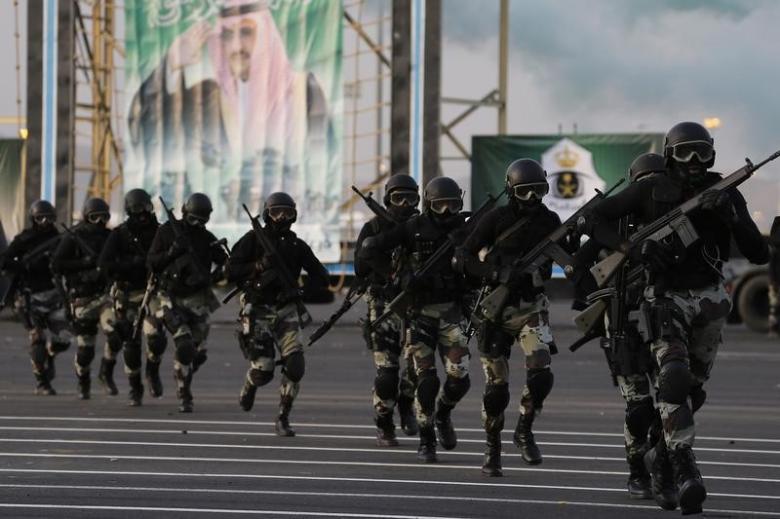Five years have passed since Saudi Arabia’s eastern costal village, al-Awamiyah, witnessed turmoil, disorder and rabble-rousing speech that resulted to riots inciting sectarian strife. Shootings, bottle bombs, murder and terrorist acts targeted citizens, institutional buildings and commercial shops.
Civilians and al-Awamiyah people were the most to suffer.
Reform, a fight for rights, reasons of chasing Peninsula Shield Force out of Bahrain, and sometimes for division — the justifications and labels are numerous, but the destruction ever the same.
Evidently the riots only aimed to wreak havoc and spur chaos.
Worth mentioning that in the face of all the chaos – government security plans and strategies for al-Awamiyah were established on the vital principals of separating harmed and deceived citizens from opportunists following a terrorist and organized crime mindset.
In retrospect, with all the extremists found guilty of al-Awamiyah’s descend to chaos, cries for “reform” and “rights” unmistakably were nothing more than a cover up.
Even though the Saudi government has exercised unrivaled restraint and relentlessly perused the restoration of civilian livelihood to the small village – curbing terrorism in the area was fully effective only after religious and social figures had sensed their national responsibility in raising awareness, admitting that all false slogans for “reform” were nothing more than a first-time hoax pulled by terror groups.
The community now stands assertively in solidarity with the state, after a short period of hesitance, fully aware of the protective role played by the government.
Rejection, condemnation and denunciation now face all those not calling a spade a spade: the sole befitting description of what had happened is terrorism, not “reform,” not a “call for rights”.
Terrorist rings exploited the community as a mean for their own illicit ends.
Two days ago, a group of 110 al-Awamiyah-based social, academic and religious figures released a statement expressing unparalleled support for a Friday speech delivered by local cleric, Sheikh Ja’afar Ribh, urging the public to stand against the anomalous and reprehensible criminal acts that only inflict pain and suffering to citizens of al-Awamiyah .
The series of criminal acts staged by weak-spirited people, whether vandals or outlaws, such as the ransacking of al-Awamiyah charity centers, compromising private and public property – namely civil facilities such as power plants and schools – constitute a violation and anti-peace transgressions carried out against the society, said the statement.
Unfortunately, all those deceived by the false slogans later discovered the terrorist nature of the so-called “reformist” actions.
The statement, which is not the first of a kind, is one of the positive and influential ways for eliminating terrorism from al-Awamiyah. Security-focused confrontation will not work effectively alone unless backed by community consensus dismissive of attempts to spread disarray and confusion among citizens. A community which feels strongly against the ugly use of sectarian bigotry that eventually results in spilling innocent blood and spreading terror.
Al-Awamiyah is one of 38,000 populations distributed across the Kingdom’s coastal line and has received equal state treatment as other villages and cities in the area.
All of al-Awamiyah’s 27 thousand residents have been dealt with on basis of equality with respect to the Kingdom’s population of 30 million, sharing national rights and duties.
State policy towards al-Awamiyah, since the outbreak of riots, has remained unaffected by attempts to destabilize the village. Five years after the unfortunate, spiteful and agonizing upheaval the sole prevailing truth is that Saudi Arabia’s state strategy is pivoted on fighting terrorism, protecting civilians, preserving rights and restoring stability. The government has truly established that the security of Saudi citizens in al-Awamiyah is a priority to state efforts.
The Kingdom has undertaken the pursuit of the lawless and the safekeeping of all nationals irrespective of area.
